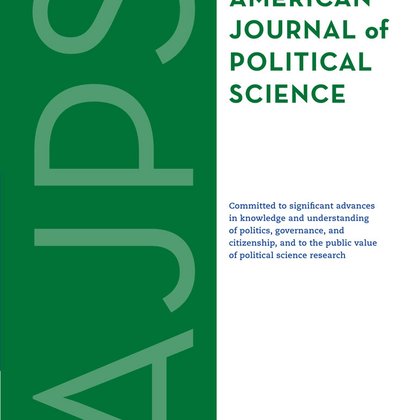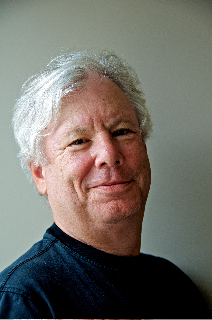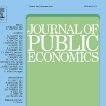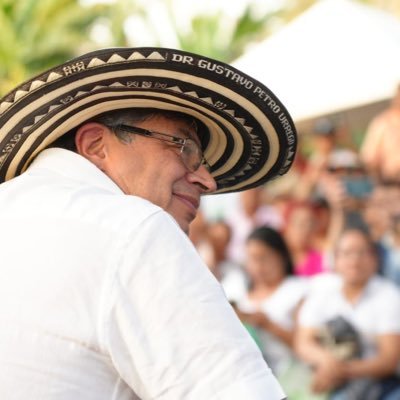
Juan Vargas
@juanf_vargas
Followers
8K
Following
9K
Media
639
Statuses
6K
Carlo Alberto Chair, @CollegioCA. Prof. Ordinario (Full) of Pol Econ, @EconomicsUnito. Capo maggiore, AL CAPONE (Am Lat Crime and Policy Network). Dad (jokes).
Bogotá, Colombia
Joined July 2011
2025 Economics Nobel laureate Joel Mokyr published in a top-five economics journal twice—in 2018 and 2023. That alone should prompt reflection on why the current obsession among top departments with “Top 5 or bust” publishing is misplaced.
11
77
680
Muy recomendada lectura
1
1
4
Let me also recommend my article “The Real Winner’s Curse,” coauthored with @LeopoldoTweets, @pquerubo and @nelson_ruizg
https://t.co/vb0oZYTeFp
onlinelibrary.wiley.com
Traditional theories of democracy suggest that political representation of excluded groups can reduce their incentives to engage in conflict and lead to lower violence. However, this argument...
0
8
35
Climate change, natural resources, and conflict: Navigating a complex nexus Last month on VoxDev, @olivervdeynde (@PSEinfo @PSEresearch) & @juanf_vargas (@CollegioCA) discussed how extreme weather and the green transition are reshaping global conflict:
voxdev.org
Extreme weather and the green transition are reshaping global conflict. We summarise the evidence on this trend and explore how policy can respond.
1
4
5
10/10 🌍 With ~60 countries still contaminated by landmines, our findings from Colombia offer a roadmap. Demining is more than removing hidden explosives—it’s unlocking human and economic potential. 📄 Full paper (@JPubEcon):
3
0
5
9/ 🧠 Policy implications: Demining is expensive, but it pays for itself many times over! 📌 Target demining near roads and schools 📌 Pair demining with development (e.g. crop substitution) 📌 Frame demining as a long-term investment, not just post-conflict cleanup 👇🏽
1
0
3
8/ ⚖️ Demining also reduces inequality. Redistributed gains benefit the broader community—not just elites. This underscores its value not just as a safety measure, but as a powerful and inclusive development policy. 👇🏽
1
0
3
7/ 🌳 Any unintended consequences? No! We found no increase in deforestation or illegal gold mining—meaning that economic gains weren’t captured by extractive or illegal industries. And with complementary crop substitution programs, coca cultivation fell even further. 👇🏽
1
0
1
6/ 🛣️ Which areas benefit more? Connectivity matters. Areas with better road access see stronger gains. We simulate the national economic impact using a general equilibrium model: Without demining, Colombia’s GDP would’ve been 0.7% lower per year (2013–2019). 👇🏽
1
0
1
5/ 📚 Education improves immediately after demining: •Schools reopen •Enrollment surges •Student-teacher ratios fall •More students advance grades It’s like giving children an extra year of school—just by clearing the ground they walk on. 👇🏽
1
0
4
4/ 💥 Key findings: ✅ Nightlights (a proxy for economic activity) ↑ 11.5% ➡️ municipal GDP ↑ 0.7% ➡️ $1 spent on demining yields ~$6 in benefits. ✅ Population density ↑ 2.6% ✅ Math test pass rate ↑ 6.2 p.p. ✅ Reading test pass rate ↑ 7.5 p.p. ✅ Coca cultivation ↓ 9.9%
1
0
4
3/ 💡Methodology: We used geolocated data on 294 demined areas and compared them to regions not yet demined (but eventually would be). Using modern DiD methods (e.g. Callaway & @pedrohcgs 2021), we identified the causal effects of demining on local development. 👇🏽
1
0
4
2/ Context: Colombia has one of the highest numbers of landmine victims globally—top 3 for homemade mines. But in 2013, amid peace talks with FARC, Colombia began a large-scale humanitarian demining campaign. We analyzed its impact. 👇🏽
1
0
2
1/ 🚫💣 Landmines silently continue to threaten lives long after conflicts end. But what happens when we remove them? In the paper, we study the economic and social effects of humanitarian demining in Colombia 🇨🇴. The results are, I think, quite powerful. 👇
1
0
5
So happy to see this paper finally published. And so cool that it found a home at @JPubEcon! This is paper summarizes what is perhaps the most policy relevant piece of research I’ve conducted so far. A 🧵:
Just published in @JPubEcon "Landmines: The local effects of demining" By Mouno Prem, @Mglpurroy, & @juanf_vargas
https://t.co/EwAcpuGZe1
#EconTwitter
4
48
239
Presidente, déjeme parafrasearlo: cada habitante del mundo (8.200 millones) entró en promedio 159 veces al pabellón de Colombia. Yo no pude ir entonces el promedio sube un poco. A 25Kg cada lechona, se sacrificaron 400 millones de marranos. Éxito total, presidente.
He entrado al pabellón de Colombia en la feria del futuro de Osaka, Japón. Nos criticaron su costo, y ¿saben qué? Han entrado 1.300.000 millones de personas al estand, se han vendido 700 clases diferentes de productos colombianos; solo en uno: los aguacates, vendimos 11
1
1
20
In our new @vox_dev piece, @olivervdeynde and I summarize a review paper on the nexus between climate change, conflict and natural resources. The longer paper is forthcoming in Economic Policy:
academic.oup.com
Abstract. This paper examines how climate change and natural resource dynamics contribute to conflict, with a focus on the implications of the green transi
🆕 Climate change, natural resources, and conflict: Navigating a complex nexus Today on VoxDev, @olivervdeynde (@PSEinfo @PSEresearch) & @juanf_vargas (@CollegioCA) discuss how extreme weather and the green transition are reshaping global conflict:
0
0
9
#Voces es el nuevo canal para que economistas académicos colombianos podamos reflexionar sobre temas que le incumben al país. Feliz de poder contribuir a este experimento.
#Voces | El crimen organizado frena el desarrollo en América Latina y el Caribe. 🔗 https://t.co/X2GJValPG3 No es solo narcotráfico: controla territorios, extorsiona empresas, erosiona la democracia y captura al Estado📉 En #VocesDeEconomía, @juanf_vargas analiza sus causas,
1
5
20
Check out my new @vox_dev piece with @olivervdeynde on the complexity of the climate change-natural resources-conflict relationship and its consequences for the green transition and for conflict prevention
Extreme weather and the green transition are reshaping global conflict. Evidence on this trend explores how policy can respond. Read today's article w/ @olivervdeynde & @juanf_vargas to learn more:
0
10
17










